So here comes my guide to the Mountainous Highlights of Peru – and this pun is totally intended!
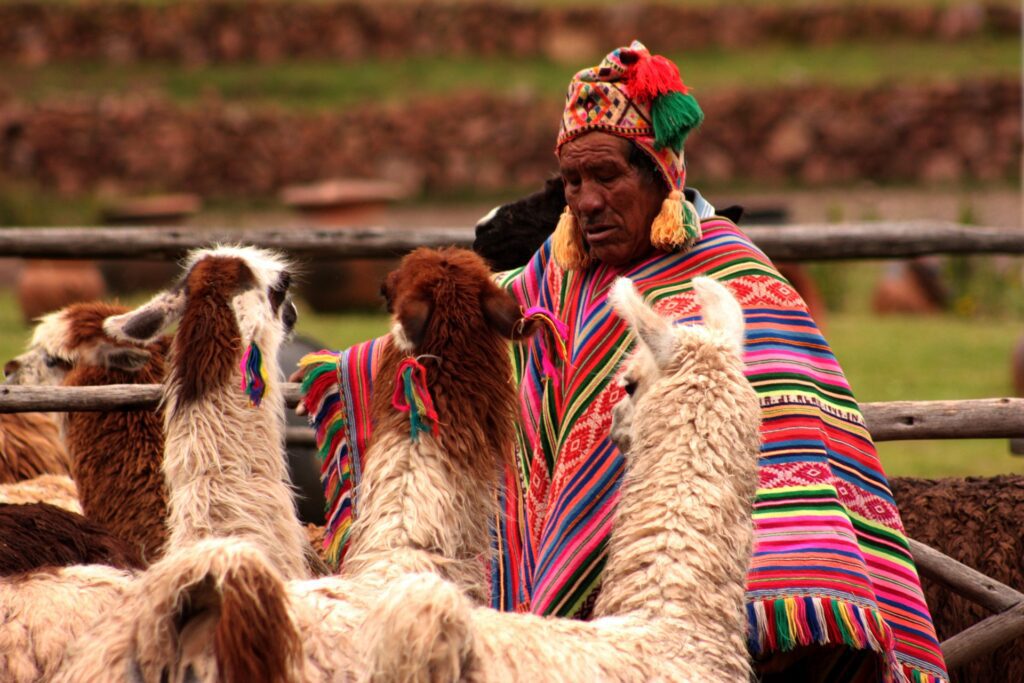
(Photo: Fred Wanderley Fred on Pixabay)
While Peru does invite its visitors to experience the sierra, selva, and costa – hence, the mountains, the jungle, and the coast – the first-mentioned is definitely the most unique and alluring of those regions.
Whether the highlands and canyons around Arequipa in the West or the Northern part of the Altiplano, the Andean Plateau, that originates Northwest of Lake Titicaca and spreads about 1,000 kilometers into Bolivia, the mountainous region is indisputably a geographically and spiritually one-of-a-lifetime experience.
Presuming that nobody will go to Peru and skip Cusco or Lake Titicaca – after all, these places are legendary – I put together a guide for those who do not have enough time to meander the Ruta del Gringo, hence, the route from Lima all the way down into Bolivia, but just come to see the most iconic Andean region.
Arequipa and the Colca Canyon
Arequipa
Let’s start our Andean circuit in Arequipa, the colonial so-called White City with spectacular views of the surrounding mountains.
The city is 2,335 meters above sea level.
Already, this altitude caused me minor problems. I felt a little dizzy and nauseated. Also, the fact that I came by night bus from Ica did not help to make me feel better.
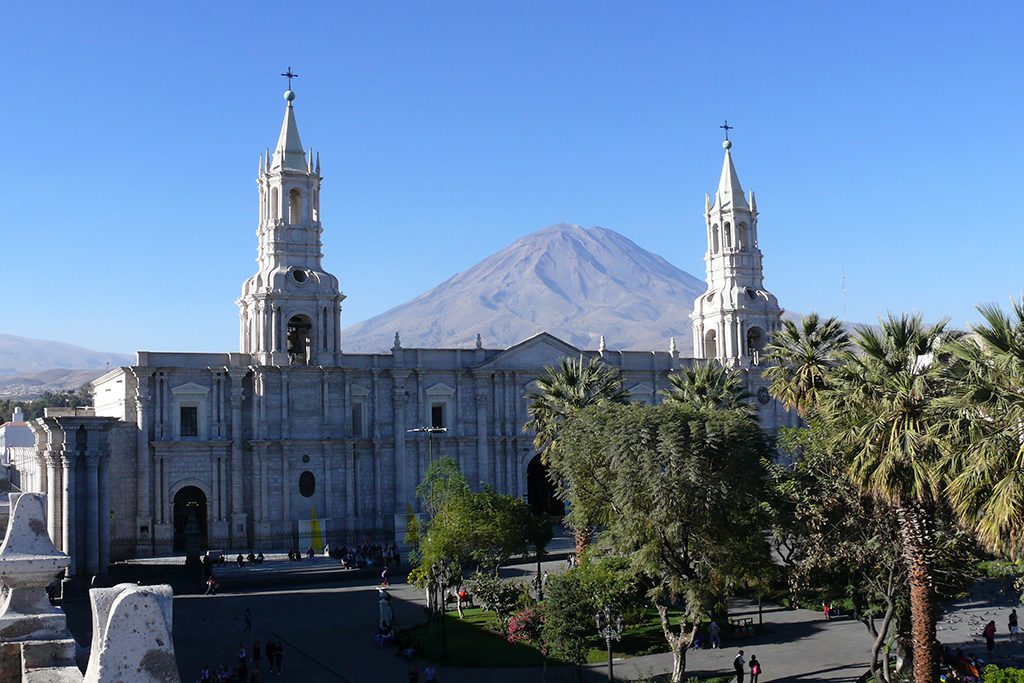
(Photo: Max Berger, Cathedral of Arequipa Misti, cropped 2:3, CC BY-SA 4.0 )
Nevertheless, Arequipa does have an airport so that you can comfortably fly in from Lima. However, domestic flights are not exactly cheap. In general, buses are very comfortable in Peru. So getting to Arequipa by bus is a valid option. Especially if you are not coming straight from Lima, but add some stops on the way.
The city itself is very elegant and beautiful, surrounded by volcanoes like the Misti and the even higher Chachani further south.
Noticeably, there is money here. As a matter of fact, in the mid-2000s, Arequipa was the city with the highest economic growth in all of South America.
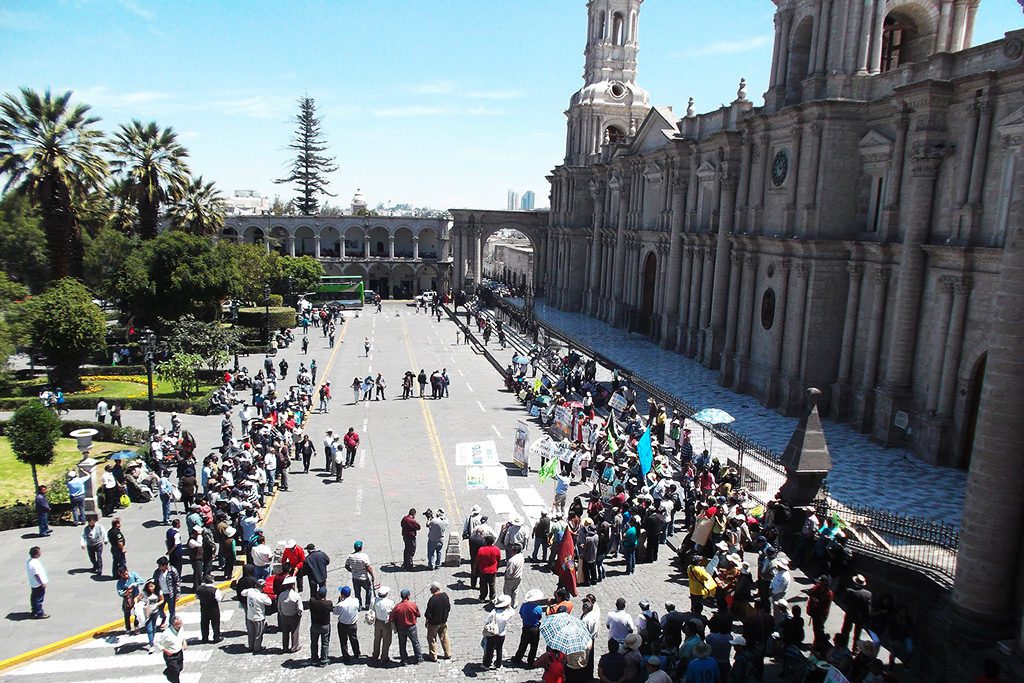
Nevertheless, this is mainly due to the mines. There used to be silver and gold. Today, they have only copper. But this industry, of course, causes ecological and also social problems.
The main attractions are found in the city center and can be visited in one day. Or in two, if you want to take it really slow and more relaxed.
Once in Arequipa, you need to
✔ pay mummy Juanita at the Museo Santuarios Andinos a visit
✔ explore the Convento Santa Catalina and how those nuns used to live
✔ get blinded by the white of the baroque buildings made up from sillar
✔ awe at the surrounding Volcanoes in the city’s backdrop
✔ take the bus along the Ruta del Sol* to Lake Titicaca
But there is much more to explore – as you can read in my post.
Colca Canyon
Besides being a beautiful town, Arequipa is the hub for tours to the Colca Canyon, and that’s something you definitely shouldn’t miss.
At the first designated stop, which is the town of Chivay, you’ll find yourself at an altitude of 3,500 meters.
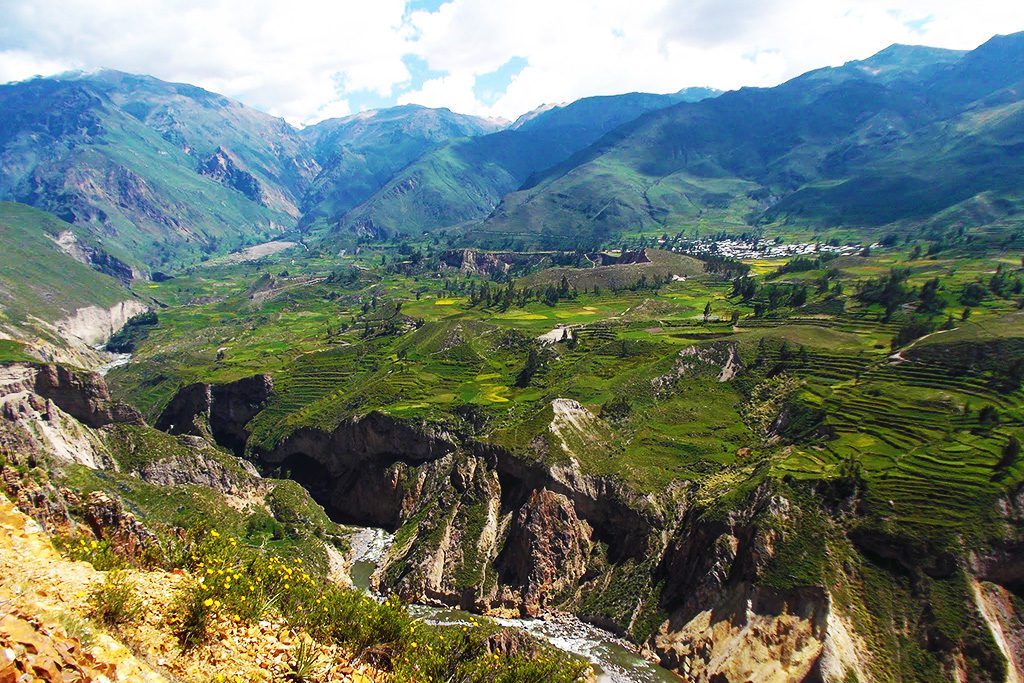
However, since the tour takes you all the way up to the Pampa Cañahuas, the highest spot you visit will probably be at 4,800 meters above sea level!
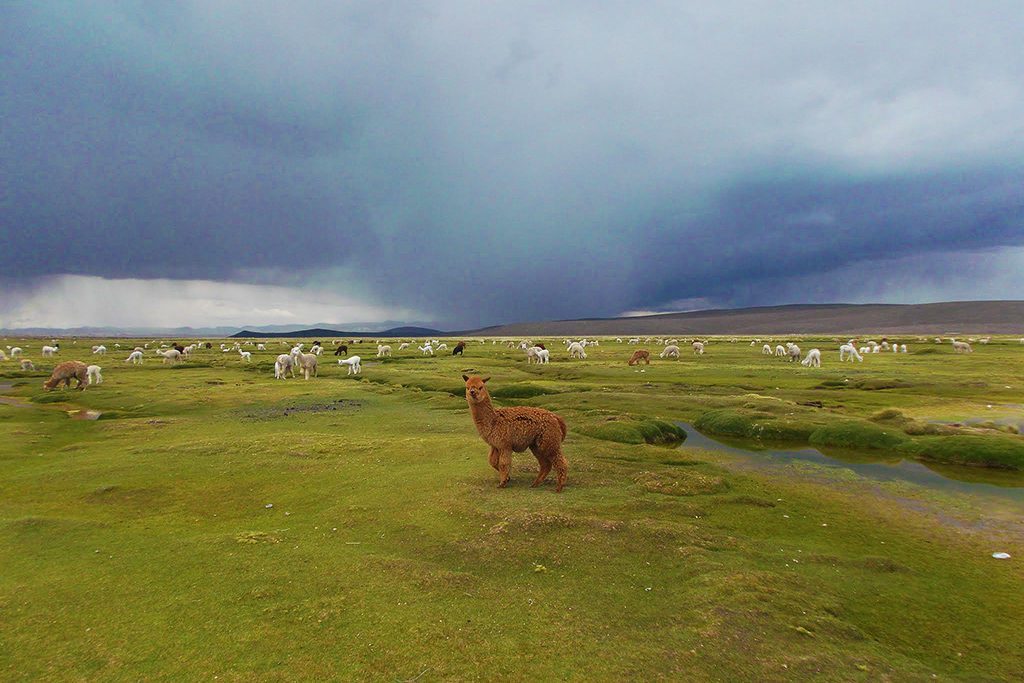
You can book tours at many agents around town. This being said, you should refrain from booking online since that’s much more expensive.
However, there are day trips, but also different hiking tours that can take several days.
On your tour of the Colca Canyon, you’ll get to
✔ take a culinary and cultural break in the town of Chivay
✔ do some souvenir shopping in the town of Yanque
✔ see condors flying at the Cruze del Condor
✔ pay Alpacas and Llamas a visit at the Pampa Cañahuas
✔ finish the day with a relaxing dip at the Calera Thermal hot spring waters
But there is much more to explore – as you can read in my post.
Puno and Lake Titicaca
The city of Puno is the main gateway for exploring Lago Titicaca from the lake’s Peruvian side.
Beware that you’ll find yourself at a height of an imposing 3,830 meters.
Hence, you’ll definitely feel the effect of the altitude. Even at the hotel, they had oxygen bottles, just in case.
As a matter of fact, I was not able to withstand the day without some medication. As a side effect, however, they made my mucous membranes paper dry, which resulted in a nosebleed.
Since, consequently, I had to choose between the devil and the deep blue sea, I unhesitatingly chose the latter.
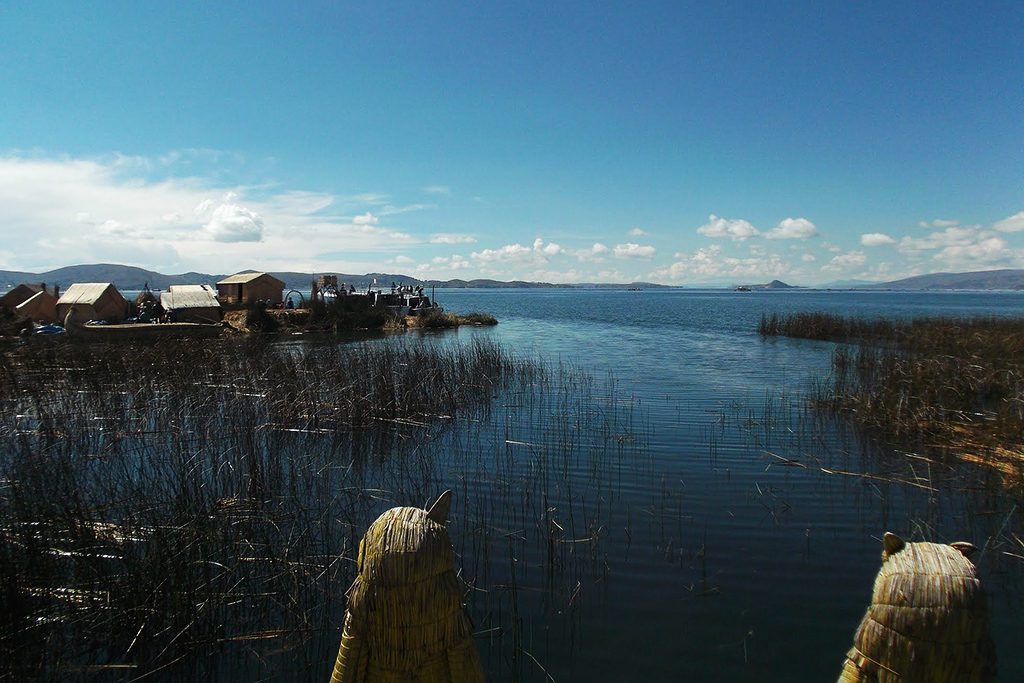
Puno, as a city, is not the most alluring place, hence, mainly the starting point for trips to Lake Titicaca with its fascinating, handmade Uros Islands and the magical Isla Taquile.

Most importantly, it has the Jarron de Lima with restaurants and shops, and agents where you can book a tour on the lake to the Uros Islands – isles made of straw.
Once in Puno, you need to
✔ float on the Uros Islands and shop for unique straw souvenirs
✔ buy a hand-knit hat on Taquile Island
✔ enjoy the panoramic view from the Mirador El Condor
✔ have Alpaca for dinner
✔ take the bus along the Ruta del Sol* to Cusco
But there is much more to explore – as you can read in my post.
Cusco
After the heights of Puno, what a relief it was to arrive in Cusco! Not only is it located at ‘only’ 3,400 meters above sea level. Also, my body slowly got used to these altitudes.
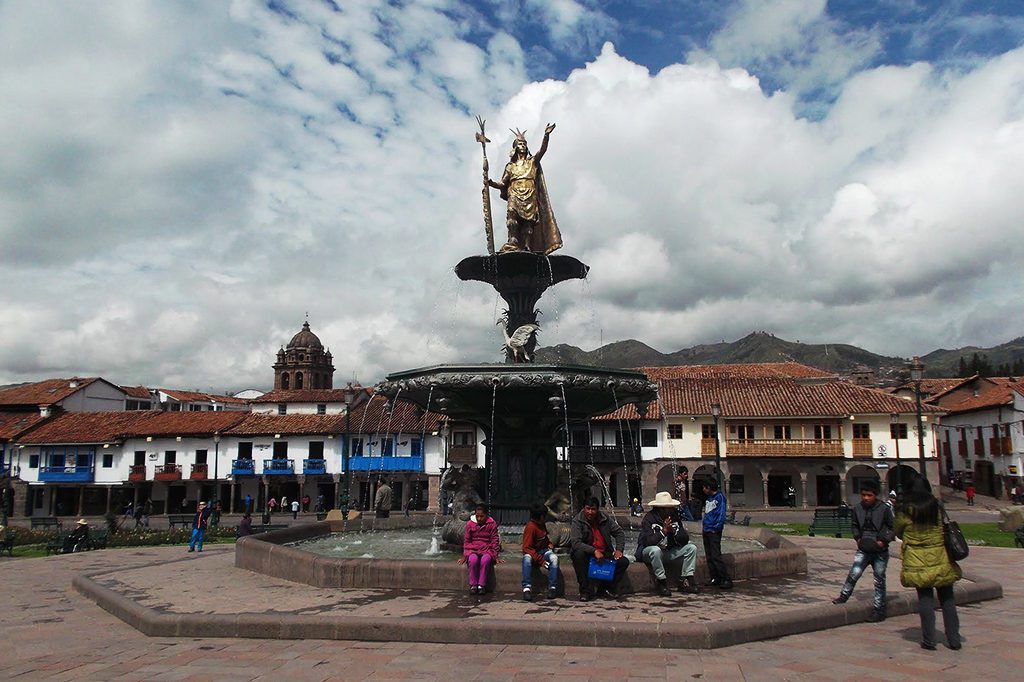
Anyway, I loved and enjoyed Cusco not only due to my better being but mainly because of its incredibly beautiful and well-maintained colonial structures and layout. If Disney were to build a South American theme park, it could use Cusco as a blueprint. It is such a classic. There is even a gothic-like style of painting called after this gem Escuela de Cusco – the school of Cusco.
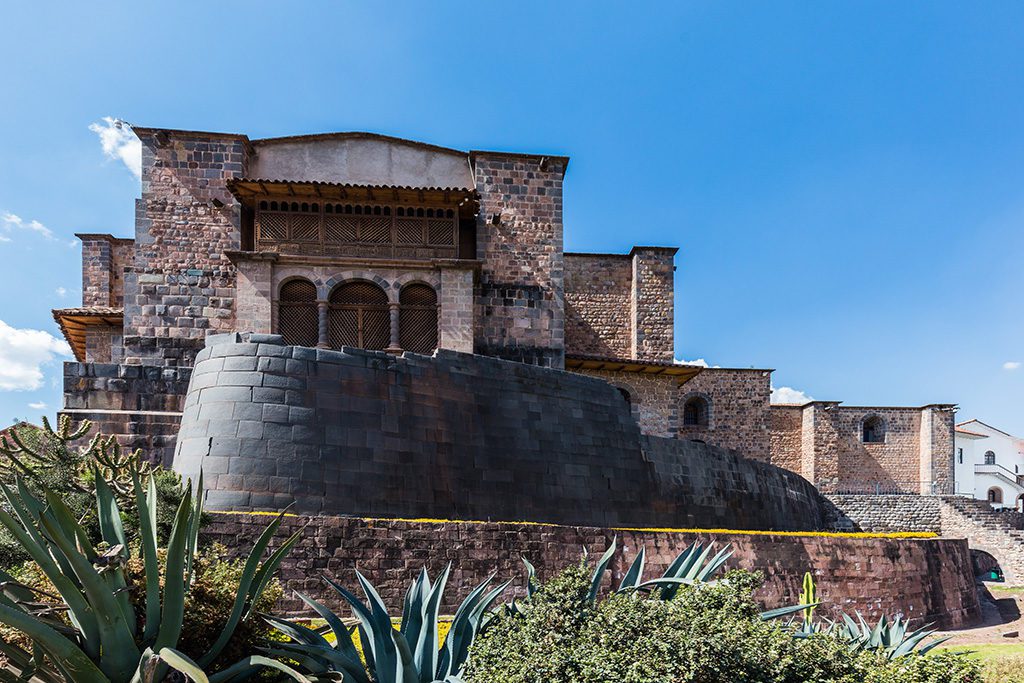
(Photo: Diego Delso, Coricancha, Cusco, Perú, 2015-07-31, DD 68, cropped 3:2, CC BY-SA 4.0)
However, while most of the museums and exhibitions housed in churches focus on colonial art, one should not forget that this was the art of the Spanish invaders; the real local art – beautiful, original, and refined – comes from the Incas and can be found in Cusco at the Museo Inca.
Once in Cusco, you need to
✔ enjoy history in a nutshell on the Plaza de Armas
✔ travel back in time at the Museo Inca
✔ admire the Escuela de Cusco baroque at the Museo de Arte Religioso
✔ sample local delicacies and atmosphere at the Mercado San Pedro
✔ take the bus along the Ruta del Sol*+ to Puno
But there is much more to explore – as you can read in my post.
Valle Sagrado de los Incas and Ollantaytambo
Valle Sagrado de los Incas
Although already Cusco is a highlight, its surroundings, the archeological sites in the nearby valleys, are not to be missed.
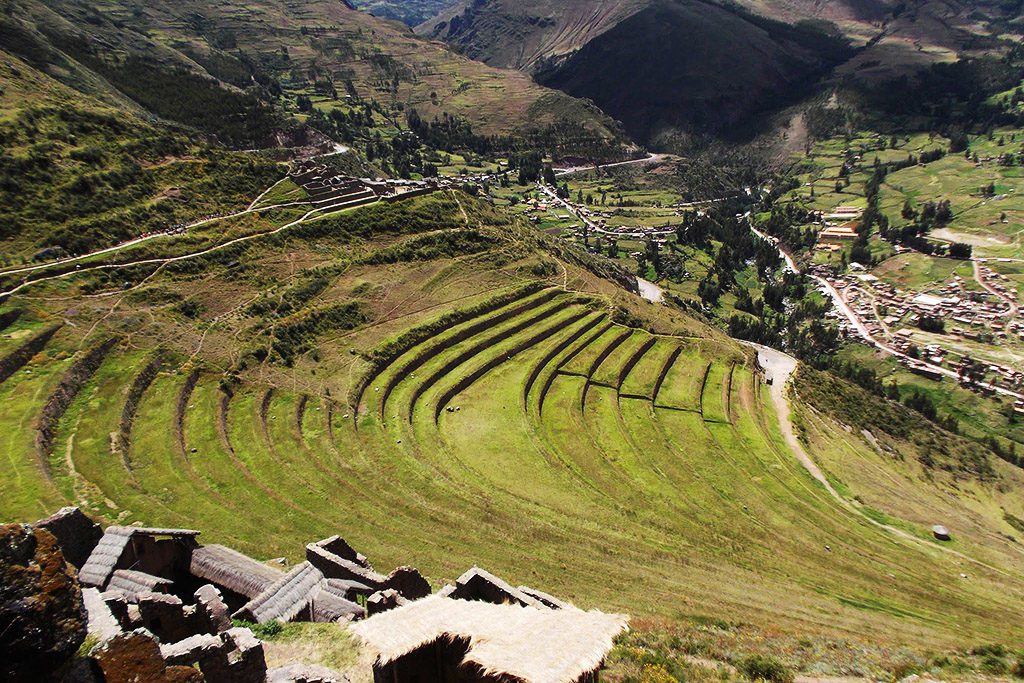
Rippling creeks descend through gorges and small valleys, and in the backdrop, the sweep of the horizon. The views of the Sacred Valley are just breathtaking.
Hence, it’s not only the altitude that takes your breath away.
As a matter of fact, here, you’ll be moving between 3,000 meters at Pisac and 2,000 meters at the Urubamba River.
Since the Incas appreciated the region for its particular geographical and climatic qualities, there are still numerous archaeological landmarks from that era.
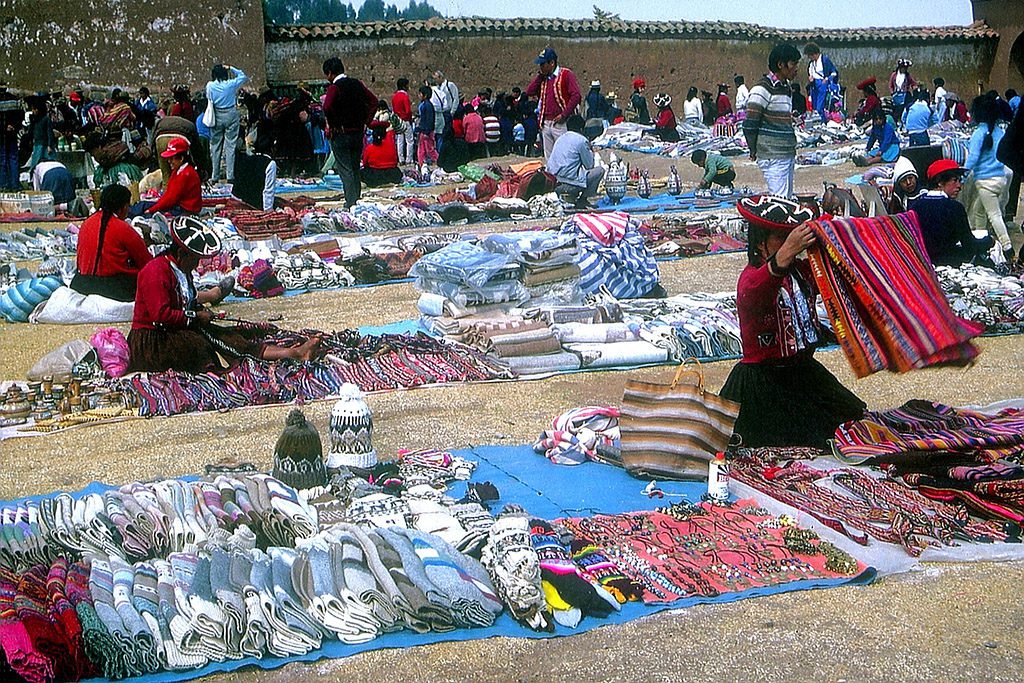
(Photo: Dr. Eugen Lehle, Chincheros Indiomarkt Textilien und Kunsthandwerk, cropped 2:3, CC BY-SA 3.0)
You can book tours to the valley at many agents around town. However, you definitely should refrain from booking online since that’s much more expensive.
Usually, all the must-dos I’m listing below are included in any organized tour.
Also, before you go, make sure to inquire about the Boleto Turistico, the Cusco Tourist Ticket that is also valid at my sites in the Sacred Valley.
Once in the Sacred Valley, you need to
✔ enjoying the panoramic view from the Sacsayhuamán citadel
✔ awe at the circular terraces of Moray
✔ get greedy at the jewelry stores of Pisaq
✔ feast on a lunch buffet at a restaurant in Urubamba
✔ stock up on local souvenirs at the market of Chincheros
But there is much more to explore – as you can read in my post.
Ollantaytambo
Undisputably, the highlight of the Sacred Valley tour is the town of Ollantaytambo.
At a relatively modest height of 2,792 meters above sea level, it is arranged around the Plaza, the main square.
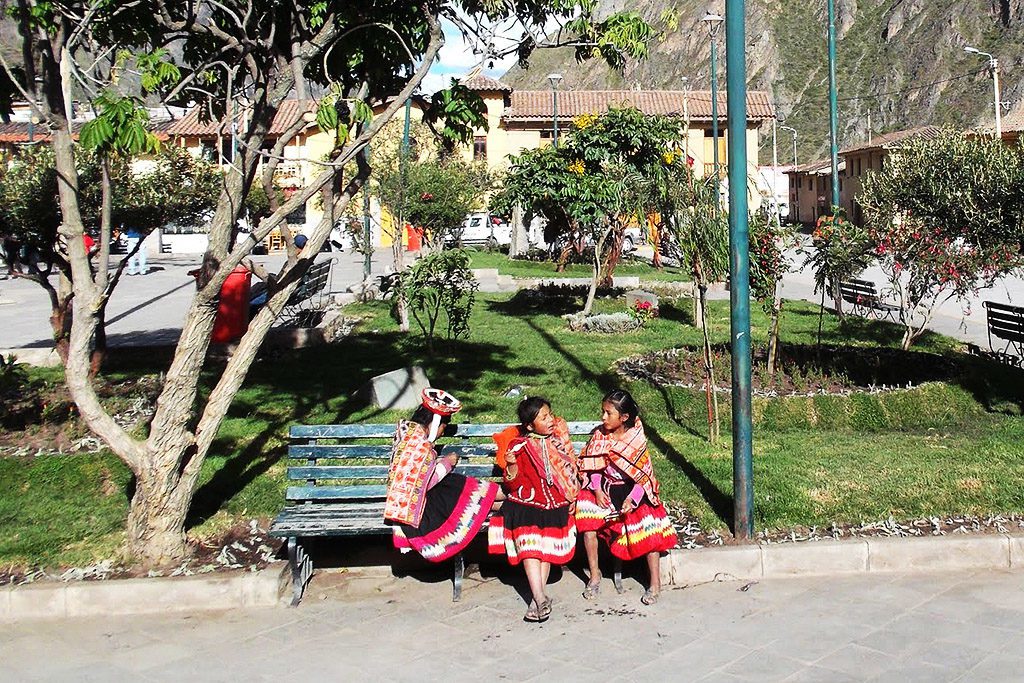
Ollantaytambo is the only remaining example of urban planning from the Inca period. The buildings and Inca terraces, as well as the narrow streets of the city, are still in their original layout.
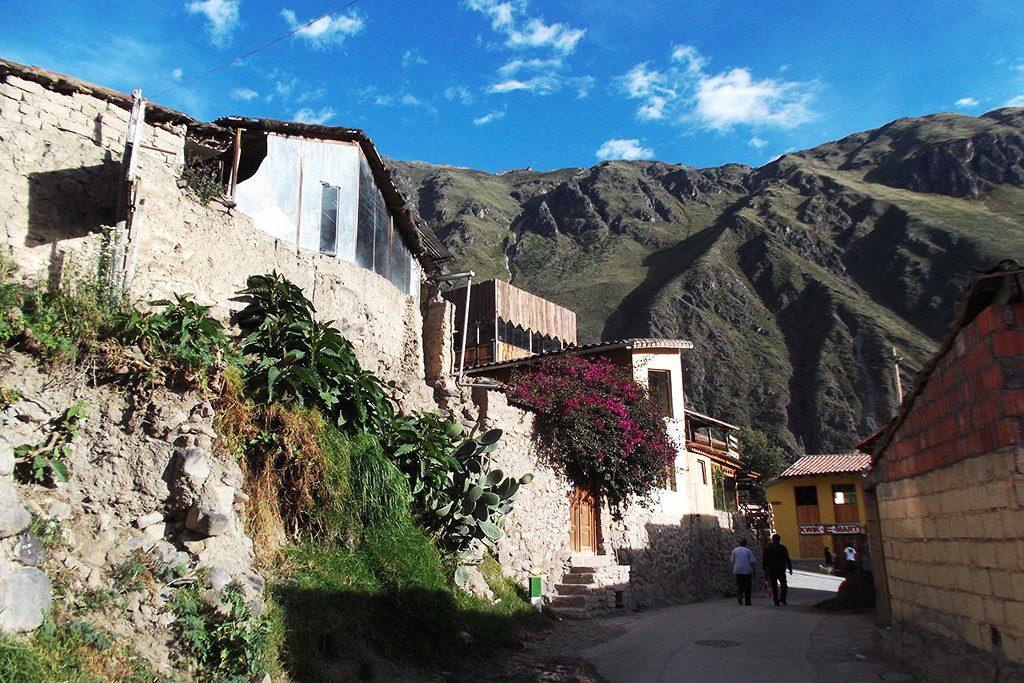
The Incas built administrative, agricultural, military, and religious institutions in Ollantaytambo. Some distinguished houses are made of perfectly worked Inca walls of dark pink stone.
Cozy Ollantaytambo was actually one of my favorite places in Peru. I believe it is totally underrated in its prominent position between Cusco and Machu Picchu. Nevertheless, if I had more time, I would actually spend a couple of days there – just to relax and indulge in the gorgeous surroundings.
Once in Ollantaytambo, you need to
✔ climb the Fortaleza citadel
✔ haggle for some cute souvenirs at the market below the citadel
✔ stroll up and down the cute cobbled alleys
✔ enjoy a snack and a drink at one of the restaurants around the Plaza de Armas after the day-trippers have left
✔ spend the night at a cute little guesthouse before continuing to Machu Picchu
But there is much more to explore – as you can read in my post.
Machu Picchu
Going to mystic Machu Picchu, you are in fact descending.
The gateway to the site, the small town of Aguas Calientes, is located at only a bit over 2,000 meters.
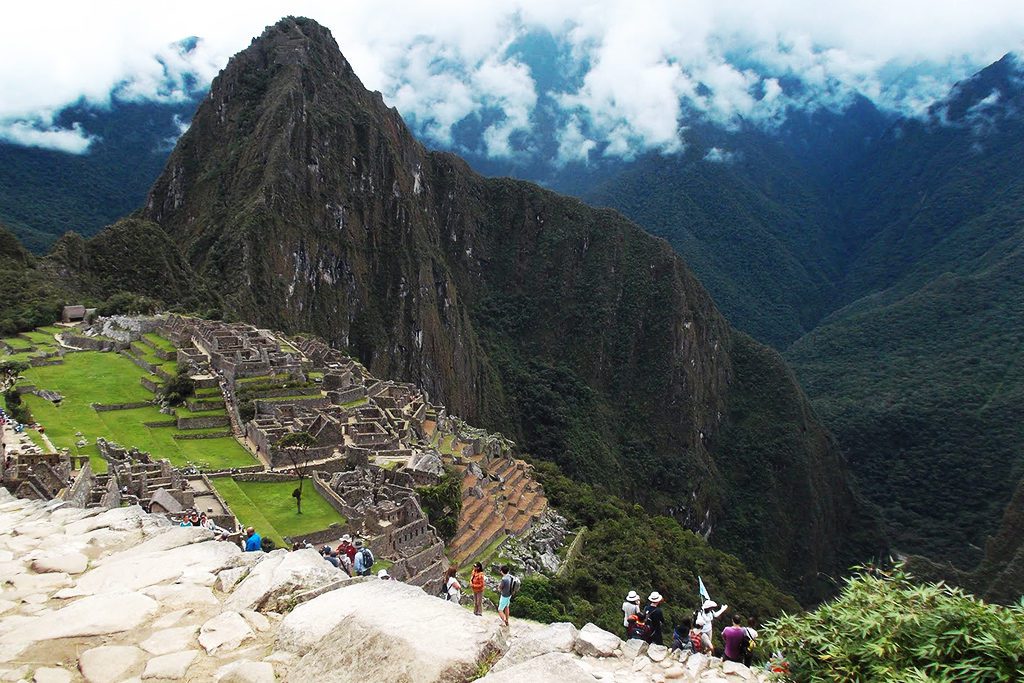
Machu Picchu is a well-preserved remnant of an ancient Inca settlement. The Incas built the city in the 15th century at an altitude of 2430 meters on a ridge between the peaks of Huayna Picchu and the mountain of the same name, Machu Picchu.
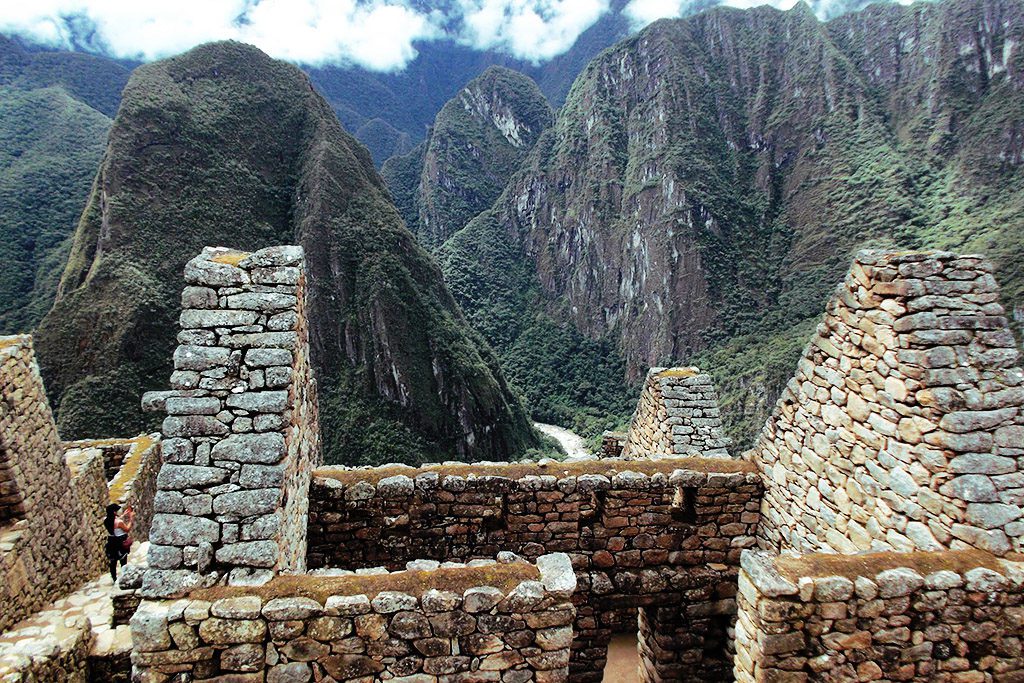
Today, Machu Picchu is one of the top tourist attractions not only in Peru, but worldwide. To protect the site, there are very strict rules to obey when visiting.
Therefore, you should definitely read my comprehensive post on How to visit MACHU PICCHU. A Once in a Lifetime Experience.
Although it’s such an iconic tourist place, it still hasn’t lost its magic. Actually, it overwhelmed me to tears.
Once in Machu Picchu, you need to
✔ enjoy the spectacular views during the train ride to Aguas Calientes
✔ walk on the terraces and the central plaza to soak in the views of Machu Picchu from many different angles
✔ explore the remnants of the different temples
✔ climb way up high to the Sun Gate and Huayna Picchu mountain
✔ finally, take a soak in the hot waters, hence, Aguas Calientes of Aguas Calientes
But there is much more to explore – as you can read in my post.
Wanna know more about fascinating Peru? I’ve published a post on my entire trip, which includes Lima, the Paracas region, and Pucallpa on the outskirts of the Amazonas territory.
Planning, Organizing, Booking
I’m an avid solo-travelling woman. Since solo travel doesn’t equal solitude, I love to join organized tours here and there. They allow me to meet fellow travellers – for just a short moment or a lifelong friendship.
Therefore, here are some great ideas of what to do during your trip to the Valle Sagrado. Especially if you have only a short time to stay, they’ll enable you to make the best of it*:
Pinnable Pictures
If you choose to pin this post for later, please use one of these pictures:
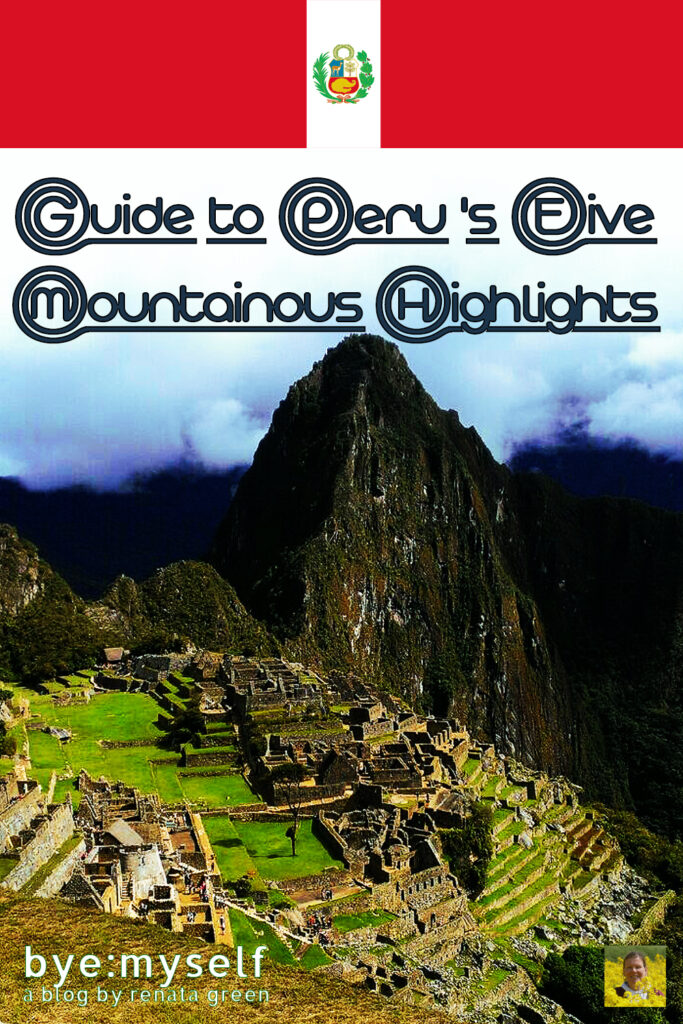
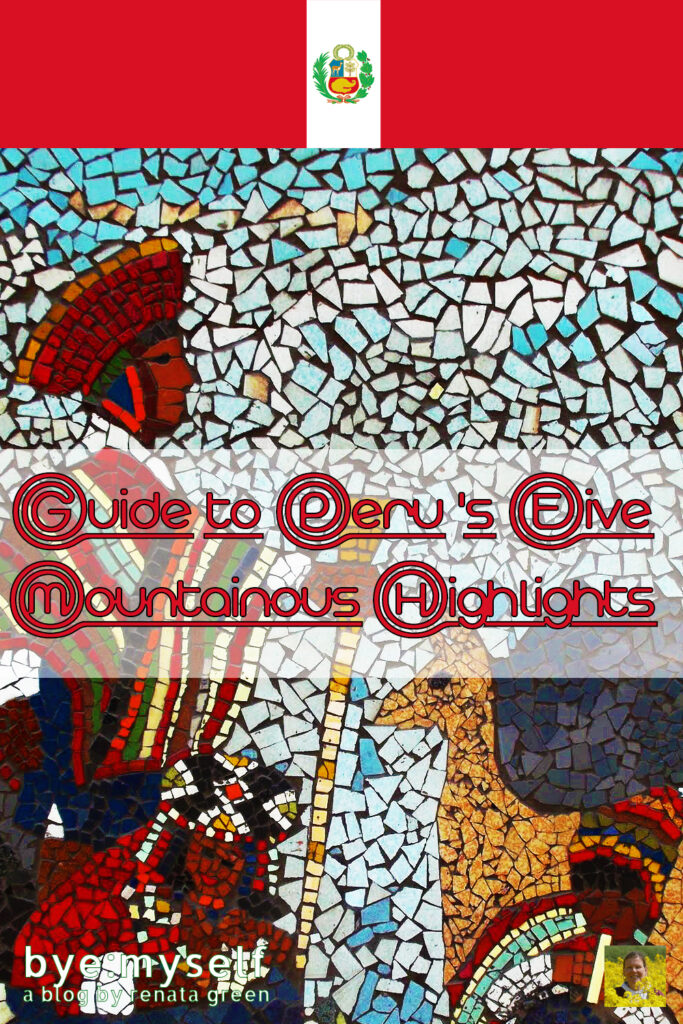
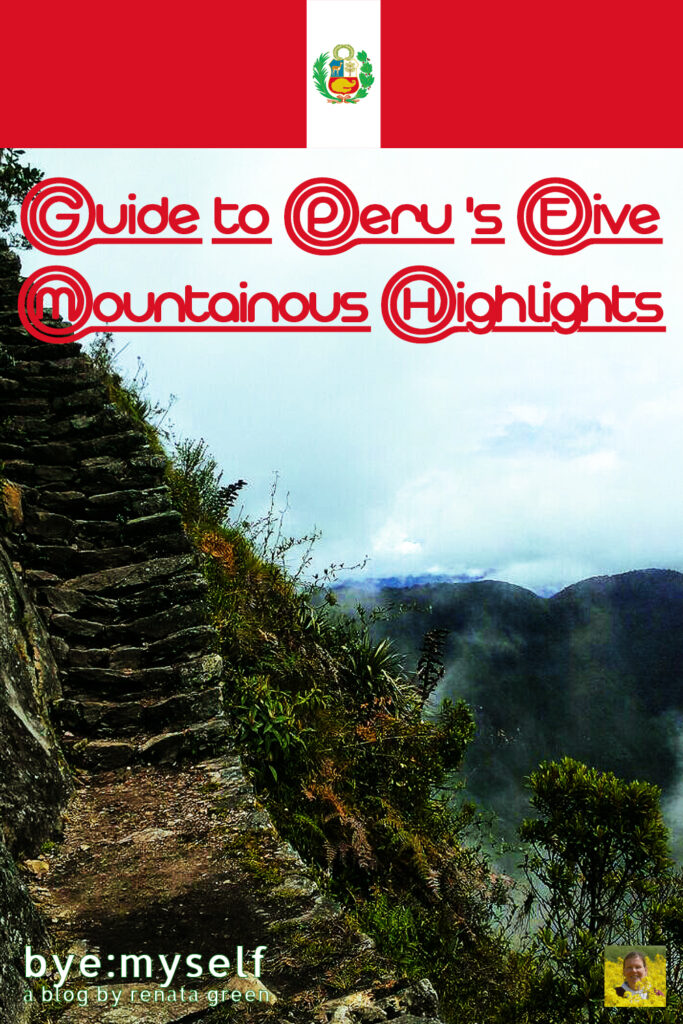
Note: This post is being regularly completed, edited, and updated – last in August 2025.
Did You Enjoy This Post? Then You Might Also Like These:
Guide to Peru ‘s Five Mountainous Highlights
Guide to CUSCO, the Fabulous Gateway to the Valle Sagrado
Guide to AREQUIPA and the COLCA CANYON
PUCALLPA – Gateway to the Amazon
How to visit MACHU PICCHU. A Once in a Lifetime Experience
Guide to PERU – Mountains, Coasts, Jungles
Guide to PUNO and a visit to lake TITICACA
Guide to LIMA – beyond Miraflores
* This is an affiliate link. If you book through this page, not only do you get the best deal. I also get a small commission that helps me run this blog. Thank you so much for supporting me!
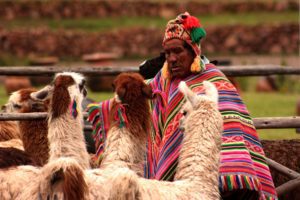
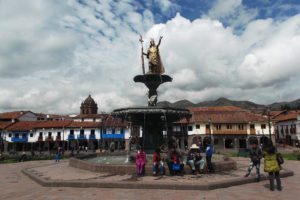
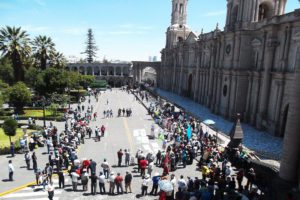
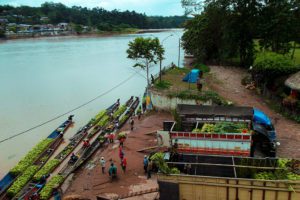
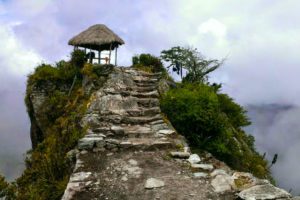
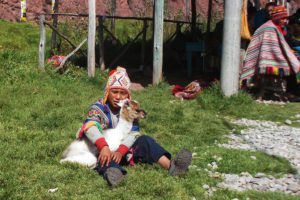
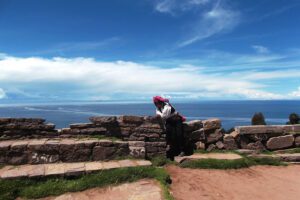

Hello there! This post could not be written any better!
Reading through this post reminds me of my own travels to Peru.
your post is really a good read. Thanks for
sharing!
Thank you for your feedback. Yes, Peru is a wonderful country – beautiful and soooo divers. Happy travels!
What a stunning part of the world. We are currently planning to visit peru following our trip to antarctica and argentina at the end of next year. Thank you for sharing about the other regions instead of just Machu Picu.
That sure sounds like a fantastic travel plan – enjoy it to the max!
What a gorgeous place!
What an amazing part of the world! I just love your colorful photos. This makes me SO excited for my upcoming trip to Peru!
Wow Peru is truly beautiful. I have been there before but a long time ago and after seeing your pictures I realized I had not completely seen or enjoyed Peru. I am definitely considering going back now! Thank you sharing your trip, your images were beautiful.
Well this took me right back to my honeymoon! We were meant to do a Colca Canyon trip but I hurt myself so we just spent three days wandering Arequipa. I really wish we had seen Lake Titicaca, that two-headed boat looks so cool! I guess we will have to see it from the other side and not get to eat that delicious alpaca and quinoa dish.
Checking out the archaeological sites would definitely be on my list! I haven't experienced anything like that. Also—how DID you like the guinea pig??
One usually associates Peru with Machhu Pichhu, but really there is so much more to see and experience in this exotic country. I for one am bowled over by the elegance and old world charm of Arequipa. It is so well maintained and the old buildings look so majestic. The other thing that I find really charming are the animals, they are so cute. A pity that they and kids are exploited for tourism.
Wow! An impressive collection of information that will be very helpful when we travel to Peru in the future. Even with the 2:30 am wakeup, the Colca Canyon must have been amazing to witness in person. Even though it is such a touristy area, Machu Picchu is so high on our list, we can't wait to experience those views!
Your photos are gorgeous and this makes me SO excited for my upcoming trip! I'll be visiting Peru for the first time this summer 🙂
Wow! It is a dream of mine to travel more, especially to richly historical places like this!
Yes, it is one of the destinations that has impressed me the most.
I'm inspired by your travels! A life of experiences rather than so much stuff. Yes please!
So! Well! Said!!
Thanks for all the great tips to visiting Peru. I haven't been, but it is on my list.
It's really wonderful, Lara!
I thoroughly enjoyed this article. It brought me back to my time in Perú, a country I completely fell in love with. However, I am one of the idiots that went to Perú and wasn't able to fit in Lake Titicaca, Arequipa or Colca Canyon. I know, I know. Facepalm. I am going to go back and am pretty sure I will do my Spanish immersion program there to finally get to fluency. I laughed at your comment "el condo pasa y ya pasó". Es la verdad! Good to know that the Puno tour isn't really worth it. I also never thought about South American Disney should use Cusco as a blueprint. I totally agree! And yes, the different spellings can get confusing. Some of that is the Quechua spelling and some of it is English vs Spanish too (Cusco vs Cuzco). Sorry to hear you had so much trouble with the altitude. It can be difficult from what I understand. We didn't have any issues, thankfully, but saw people who did. The highest altitude we reached was a little over 16,000 feet. Which brings me to my question. Did you go to Perú and not see Rainbow Mountain?
Hi Heather, nope, I did not see Rainbow Mountain. I think that in a country as rich as Peru everybody does miss out on something, right?!
And regarding Puno – I didn't really like the tour as such, but Taquile Island is fantastic – but extremely touristy.
Keep in touch and let me know how your Spanish is going on! Coraje, amiga, coraje!
Nope, I still need to go back for that asap 😉
This looks like such a great trip! Such gorgeous views!
Yes, every spot is just breathtaking (sometimes literally ?)
I've always wanted to visit South America! Seeing your stunning pictures Peru must be an amazing place to visit, and I hope I'll have such a chance in the future. 🙂
I wish you will – it's really amazing!
What a fabulous tour of Peru you enjoyed and love the way you detailed it for others to follow in your footsteps should they choose. So many highlights. One question though that was NOT answered … guinea pigs. You said you tried them, but you did not follow up with any sort of commentary. Inquiring minds want to know … what did they taste like?
I know, I didn't want to sound like, come here, kids, gather around the fire place so I can tell you my adventures.
I've just eaten a little piece and it was not as dark roasted as those on the picture. This said, I found it pretty mushy – a bit like pork, but soft. But like I said, could be the way they prepared it.
What I really liked – now that we are talking about slaughtered animals… – was Alpaka. The meat is like beef, but very, very firm – pure muscle. That was excellent, some of the best meat I've ever eaten. But now enough, I feel like Hannibal Lecter.
I love your voice in this piece. The captions on the pictures are hilarious and your opinion on the train vs bus and plane vs bus are spot for us. When I get to Peru, I would have spent a considerable amount of money, not to mention time away from work. I can literally put a price on what my vacation days cost me. Spoiler alert, it's a lot more than the price differential between an airplane back to Lima vs 24 hours on a bus.
Yes, although I'm not the big spender with an unlimited amount of money to spend on my travels, sometimes it's just a very simple calculation that makes you say, ah, what the heck. Here we are talking over a hundred dollars difference, but I've witnessed people getting into really uncomfortable situations over something like five bucks. It's not my business at all, but I would like to tell them: think…just think!
Thanks for this very comprehensive and detailed guide. I can't wait to go to Peru, so I'll definitely be pinning this for future reference!
Thank you, I'm glad I could inspire you. It's so worth it – just mesmerizing and beyond beautiful!